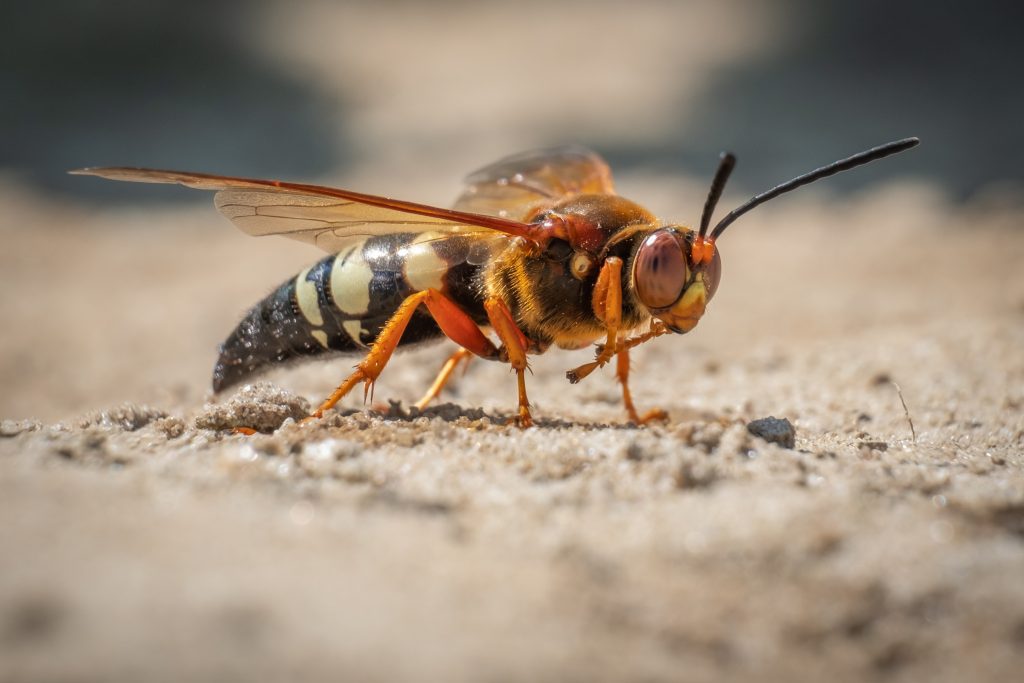
Are Cicada Killers Dangerous?
The cicada killer is known to be one of the largest wasps in North America, reaching lengths of up to 2 inches (5 cm). This makes many people ask us 'are cicada killers dangerous?' Most people consider this species to be an effective predator of pest insects, but is it considered dangerous to humans? If you happen to get stung, these stings can be very painful and may cause itching and swelling around the area where you were stung. You may even experience dizziness or nausea from being stung by the cicada killer wasp.
But are cicada killers dangerous?
It is important to understand what a cicada killer is and what it does. Despite their size, cicada killers don’t have very powerful stingers and are relatively docile. They also won’t sting you at all if you don’t bother them. Cicada killers usually won’t attack you unless provoked. When cicada killers do sting people it’s believed that they mistook you for prey. Regardless of whether or not they are actually dangerous, cicada killers certainly look like intimidating insects! When walking in areas where there might be some nearby, always be careful when stepping on logs or rocks—the insects could be lurking underneath. If you do happen to find one in your yard, try not to provoke it: get out of its territory as quickly as possible!
Are Cicada Killer Wasps?
Cicada killer wasps are large wasps. They are among the largest known species of hymenopterans, a family that includes ants, bees, and other stinging insects. They're also solitary, which means they live alone instead of in colonies. The name cicada killer comes from their diet: adult cicadas. These wasps will dig burrows up to 3 feet deep to find underground and kill cicadas, and lay their eggs inside of them. The larvae then live off the cicada, until they mature and burrow out of their host to begin life on their own.
With large black eyes and shiny black bodies, it’s easy to see why cicada killers are a member of our natural world’s most beautiful creatures. What is less widely known is that they are also opportunistic hunters of any insects that might fall within their reach—even insects as large as wasps and yellow jackets. Luckily for us, cicada killers do not sting humans. They do, however, have powerful mandibles capable of delivering a painful bite. If you encounter one in your yard or garden, keep your distance and be sure to warn curious children about its presence.
Should You Get Rid Of Cicada Killers?
These wasps are common across North America and can be difficult to get rid of because they often build their nests in places you’d never expect—inside your house, for example. Cicada killers are not aggressive toward humans, but if you disturb a nest or come into contact with one of these insects, it might sting in self-defense. This is rare, though; most people will go through their entire lives without ever encountering a cicada killer.
How to get rid of them
Cicada killers will often move away if you step on them or spray them with water. If you need to get rid of them, it can be a lengthy process. Because they are solitary insects, there is no nest to treat and remove. Treatment usually requires applying a liquid or dust product to each individual nesting location. Many homeowners choose to eliminate cicada killers because of how scary they look.
My Pest Pros at 703-665-4455 or online if you need help with cicada killers, stinging pests, or other pest problems.